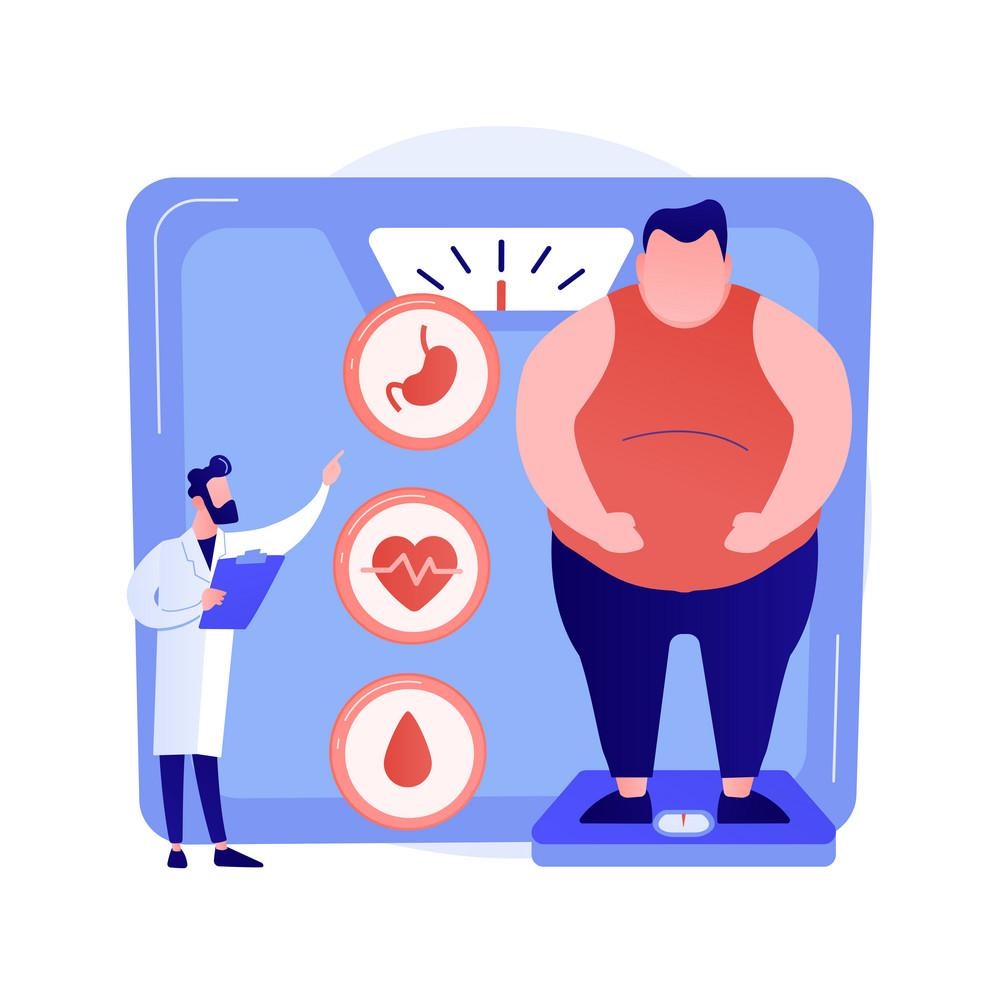OVERWEIGHT AND OBESITY: RISKS, CAUSES AND SOLUTIONS

According to WHO, as of 2022, more than one billion people, or one in eight of the world's population, were obese, and 43% of the world's adults were overweight. Since 1990, global obesity rates have more than doubled among adults and quadrupled among children and adolescents.
|
Overweight is a condition characterised by the presence of excess body fat, with: BMI between 25 and 30 waist circumference in: women 80-88 cm, men 94-102 cm. |
Calculation of body mass index (BMI): BMI=(Weight,kg )/(Height2,m) , example ИМТ=69/(1,7*1,7)=23,8 Normal BMI is from 18 to 25. Normal OT for women up to 80 cm, for men up to 94 cm. |
Obesity is a complex chronic disease in which fat accumulation can adversely affect health, with: BMI- greater than 30, waist circumference in women. 88 cm ≥, in males. 102 cm ≥. |
Risks
- cardiovascular disease
- type 2 diabetes
- certain cancers
- musculoskeletal and joint problems
- reproductive disorders
- psychological disorders (low self-esteem, depression...)
- impairment of quality of life and life expectancy
Reasons
- poor diet (40-50%)
- sedentary lifestyle (20-30%)
- genetic factors (10-15%)
- hormonal and metabolic disorders (about 5-10%):
- psychological factors (about 5-10%)
- social and cultural factors (about 5-7%)
The proportion of factors may vary depending on individual characteristics, but in general, poor diet and physical inactivity make the greatest contribution, so that the main cause of obesity can be considered an imbalance between calorie intake and expenditure, i.e. we eat a lot - we don't move enough!
Ways of fighting
- \Reduce consumption of high-calorie foods high in fats and sugars, excessive amounts of processed foods, eliminate fast carbohydrates.
- Focus on vegetables, fruits, berries, whole grain products and proteins.
- Eat in moderation (portions should be small).
- Eat a regular diet. It has been proven that regular and frequent meals (4-5 times a day) reduce the risk of metabolic syndrome, and therefore the risk of cardiovascular disease and premature death from them.
- Increase physical activity (150 min of moderate exercise per week/ 30 min per day/d 5 days per week). Practise walking in the fresh air, moving games, swimming, etc.
- Control your weight and waist circumference.
- If you have a genetic tendency to gain weight, it is important to monitor the endocrine system for hormonal imbalances, control your appetite, follow a diet and physical activity regime as they affect your metabolism.
- Learn to manage your emotional state (stress, depression, anxiety are often associated with overeating, which leads to the formation of habits related to the consumption of ‘comfort’ food).
- Healthy sleep (go to bed before 23.00, sleep duration at least 7 hours/day).
Remember! There may be several causes of obesity, so a comprehensive approach to prevention and treatment is very important.
Important! If your own efforts do not yield positive results, you should consult a specialist.




